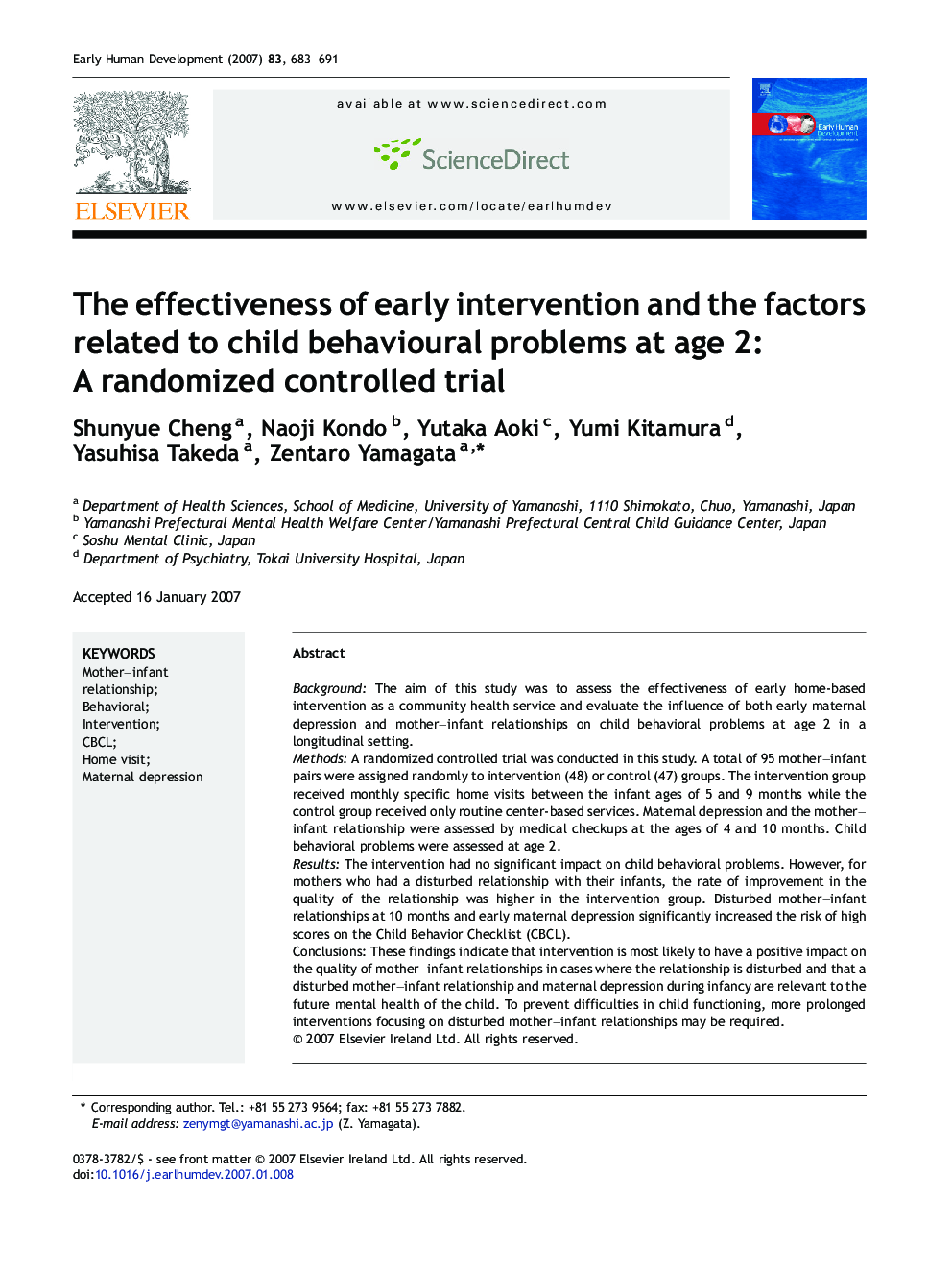| Article ID | Journal | Published Year | Pages | File Type |
|---|---|---|---|---|
| 3918052 | Early Human Development | 2007 | 9 Pages |
BackgroundThe aim of this study was to assess the effectiveness of early home-based intervention as a community health service and evaluate the influence of both early maternal depression and mother–infant relationships on child behavioral problems at age 2 in a longitudinal setting.MethodsA randomized controlled trial was conducted in this study. A total of 95 mother–infant pairs were assigned randomly to intervention (48) or control (47) groups. The intervention group received monthly specific home visits between the infant ages of 5 and 9 months while the control group received only routine center-based services. Maternal depression and the mother–infant relationship were assessed by medical checkups at the ages of 4 and 10 months. Child behavioral problems were assessed at age 2.ResultsThe intervention had no significant impact on child behavioral problems. However, for mothers who had a disturbed relationship with their infants, the rate of improvement in the quality of the relationship was higher in the intervention group. Disturbed mother–infant relationships at 10 months and early maternal depression significantly increased the risk of high scores on the Child Behavior Checklist (CBCL).ConclusionsThese findings indicate that intervention is most likely to have a positive impact on the quality of mother–infant relationships in cases where the relationship is disturbed and that a disturbed mother–infant relationship and maternal depression during infancy are relevant to the future mental health of the child. To prevent difficulties in child functioning, more prolonged interventions focusing on disturbed mother–infant relationships may be required.
